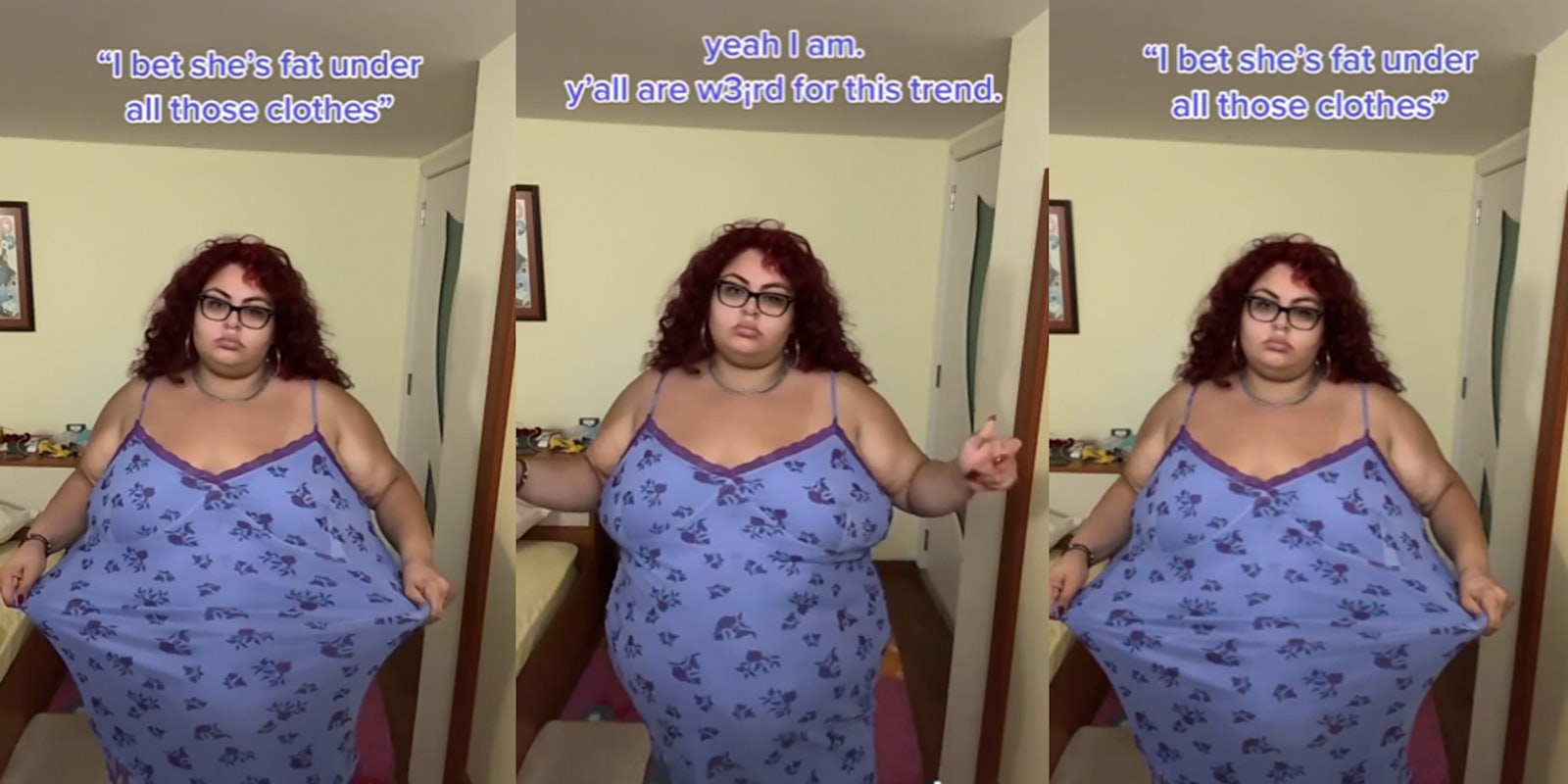
Problematic on TikTok is a weekly column that unpacks the troubling trends that are emerging on the popular platform and runs on Tuesdays in the Daily Dot’s web_crawlr newsletter. If you want to get this column a day before we publish it, subscribe to web_crawlr, where you’ll get the daily scoop of internet culture delivered straight to your inbox.
Let us crawl the web for you. Subscribe to web_crawlr here.

Analysis
Yet another fatphobic trend has popped up on TikTok—and this time, the trend even uses the word “fat.”
The trend, which seems to have been steadily gaining speed since early August, starts with a TikToker wearing an oversized shirt while the video’s overlay text reads something along the lines of “she must be fat under those baggy clothes.” The TikToker then pulls their shirt close to their body, to somehow prove that they aren’t fat. The trend is set to Future and Lil Wayne’s “Love Me,” and the song has over 23,000 videos on TikTok.
The implication of the trend seems to be that it’s a flex to be perceived as fat and then reveal that you were just wearing oversized clothes. And it’s the “gotcha” nature of the trend that really makes it an issue. Each video seems to say “oh, you thought I was this thing that has been historically looked down upon? Well, I’m not.”
Fat TikTok creators said it best in their TikToks about the trend. Deja Rose, a lifestyle TikToker who champions that one’s weight doesn’t correlate with their health, posted a video about the trend asking people who participate in it why they “hate fat people.”
“Constantly trying to prove you’re not fat for what?” she wrote in her TikTok’s overlay text.
Rose’s message picks up on the nuances of the trend: When someone goes out of their way to prove that they’re not fat, it shows that they wouldn’t want to be—or be perceived as—fat.
Case in point, in another video calling out the trend, Chloe Xandria shows her stomach with the overlay text “how does my body type affect you?”
And Mackenzie Moore, who goes by @chunkymak on TikTok, appealed to emotions in her video. In a TikTok, she asked non-fat creators who participated in the trend to consider how they would feel to have their body “deemed as disgusting.”
“It doesn’t feel good,” Moore wrote in her video’s overlay text. “Does it?”
Why it matters
This trend is not just harmful in that it makes plus size and/or fat people feel alienated and condemned, it contributes to widespread fatphobia that leads to people not getting jobs because of their size, or even not receiving the basic healthcare they need.
And if those are not harmful enough, fatphobia affects everyone. The fear of fatness is the cause of many eating disorders, the deadliest mental health condition.
Either some TikTokers are unaware of these critical correlations, or they just don’t care, because fatphobia trends are a mainstay on the app.
As a commenter on a fat creator’s video calling out the trend said: It’s tiring.


